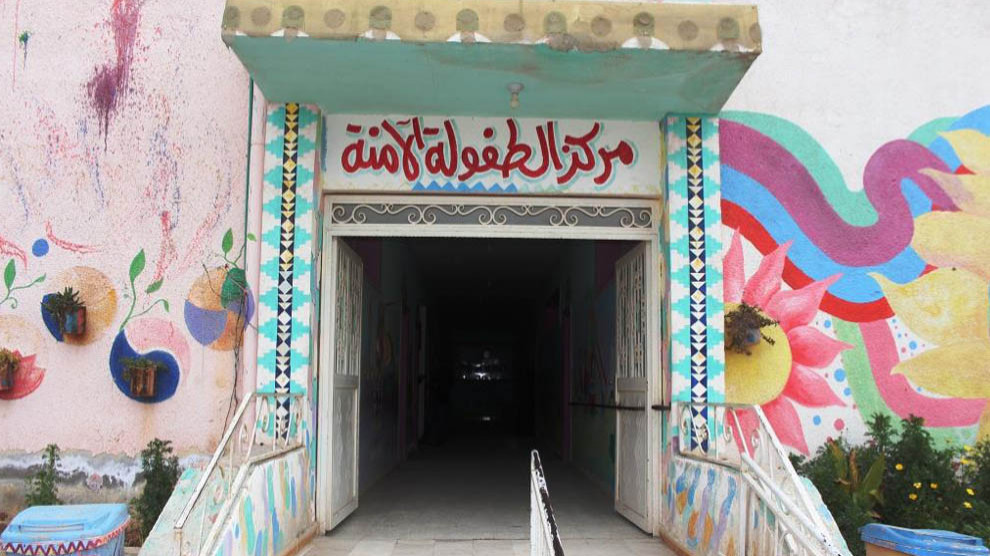Special school for children with disabilities in Raqqa
In Raqqa, a special school for children with disabilities is the only educational institution with special educational support in the region.
In Raqqa, a special school for children with disabilities is the only educational institution with special educational support in the region.

War and violence have been rife in Syria for almost nine years. What began as a civil protest has long since turned into an international conflict - with the participation of Russia and Iran as well as Turkey and Saudi Arabia. Millions of people have had to leave their homes, hundreds of thousands have lost their lives. And in the midst of it all are the weakest, the children. This legacy of war has hit them particularly hard. Too many do not know how to live in peace, have lost their parents or have had to witness their homes being destroyed. Others have been hurt or killed. Those who have survived are traumatized. And a political solution to the conflict is not in sight.
The northern Syrian city of Raqqa also suffered under the reign of terror of the ISIS. In mid-2013, Raqqa was overrun by the ISIS and declared the capital of the self-proclaimed "caliphate". For four years, terror dominated everyday life in the city. Until liberation on October 17, 2017 by the Syrian Democratic Forces (SDF), Raqqa was considered the command center and most important military base of the ISIS.
After the expulsion of the jihadists, the Civil Council took over the administration of Raqqa and initiated reconstruction. First of all, the self-governing people's municipality had the legacies of the war removed. First the seizure of power by the ISIS and then the liberation had transformed the city, which before the war had been one of the richest and most liberal in Syria, into a gigantic heap of rubble. About 85 percent of Raqqa ended up uninhabitable - destroyed by bombings and left-over ISIS booby traps and air strikes by the US-led international anti-ISIS coalition. Today, the reconstruction work, led by a society that sees it as its project to freely and democratically build an alternative, is proceeding at full speed at all levels. Only now and then do delays occur due to lack of materials.

A special concern of the Civil Council of Raqqa are the issues of children. In addition to various support programmes for girls and boys who suffer from the consequences of the war and missed parts of their schooling during the ISIS occupation, the Civil Council takes care of children with special needs through special rehabilitation measures, leisure activities and cultural activities to help them cope better with the atrocities they have experienced.The city has long recognized the principle of equal opportunities for disabled children and implements projects to ensure that all children can enjoy their basic human rights without discrimination and reach all areas of social life.
Raising awareness in society
Children with disabilities are one of the most marginalised and excluded groups in society. In order to fight against this, Raqqa implements measures to raise awareness and to sensitize society in general. Some time ago, the city's Aid Department for the Disabled opened a kind of "substitute school" for children with mental and physical disabilities. The educational institution, which looks after more than 70 pupils, is currently the only school with special educational support in the region. The children are supported holistically and individually according to their personal learning requirements. In addition to their lessons in development-oriented and action-oriented learning areas, there are also therapeutic offers. The curriculum is supplemented with extracurricular activities. However, it is still uncertain whether there will be inclusion at school in the next few years.

"We can say that many children's souls in our region have known nothing but an inferno for a long time. The traumas they experienced are in principle beyond any psychological definition", explains lecturer Amar al-Ali. Ali tells that the children were psychologically devastated and tired after several forced displacement and those with disabilities in particular were subjected to a double burden.
"We want their physical and psychological wounds to heal. This is only possible if they feel safe, get their childhood back and enjoy equal participation in social life".
RELATED NEWS: